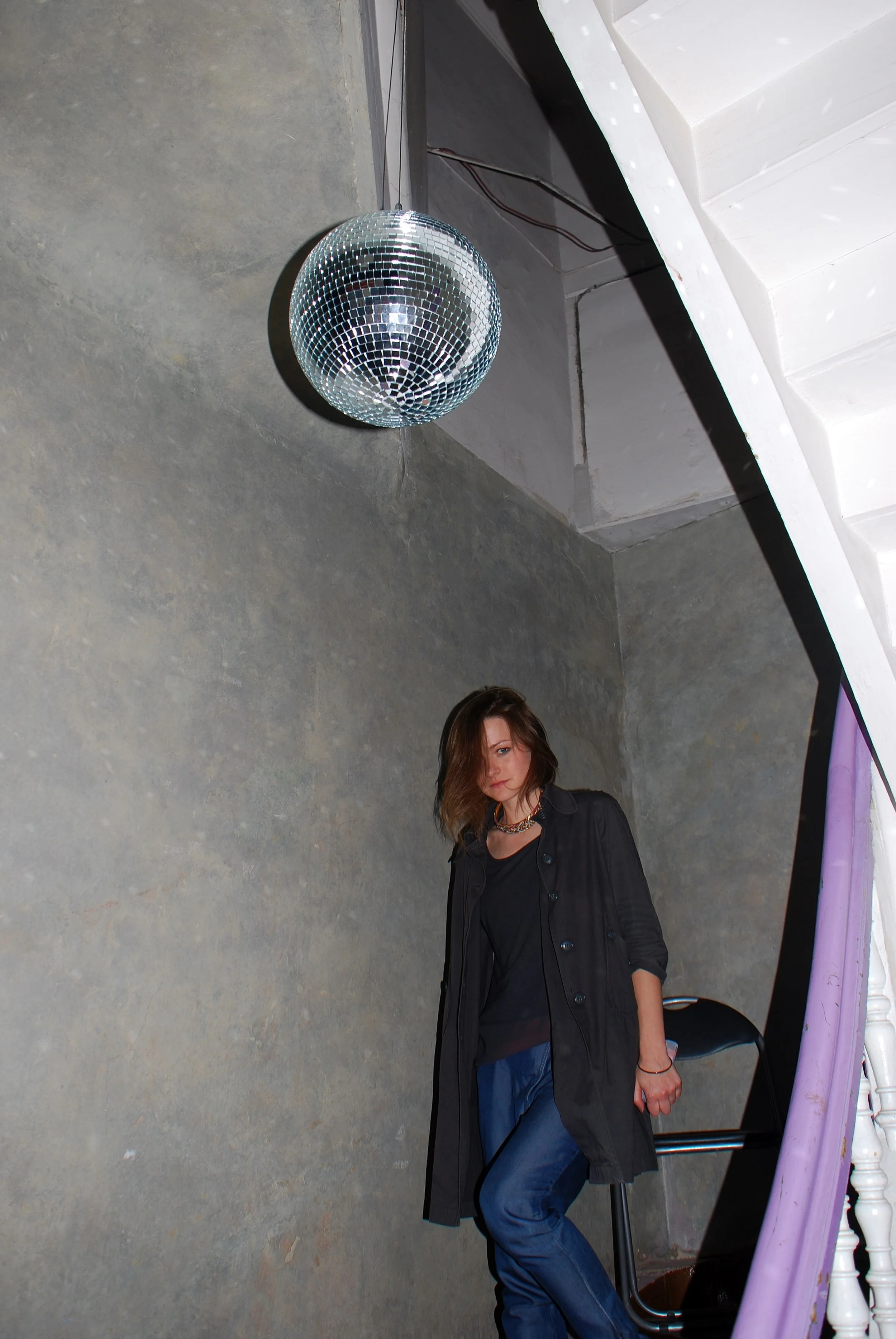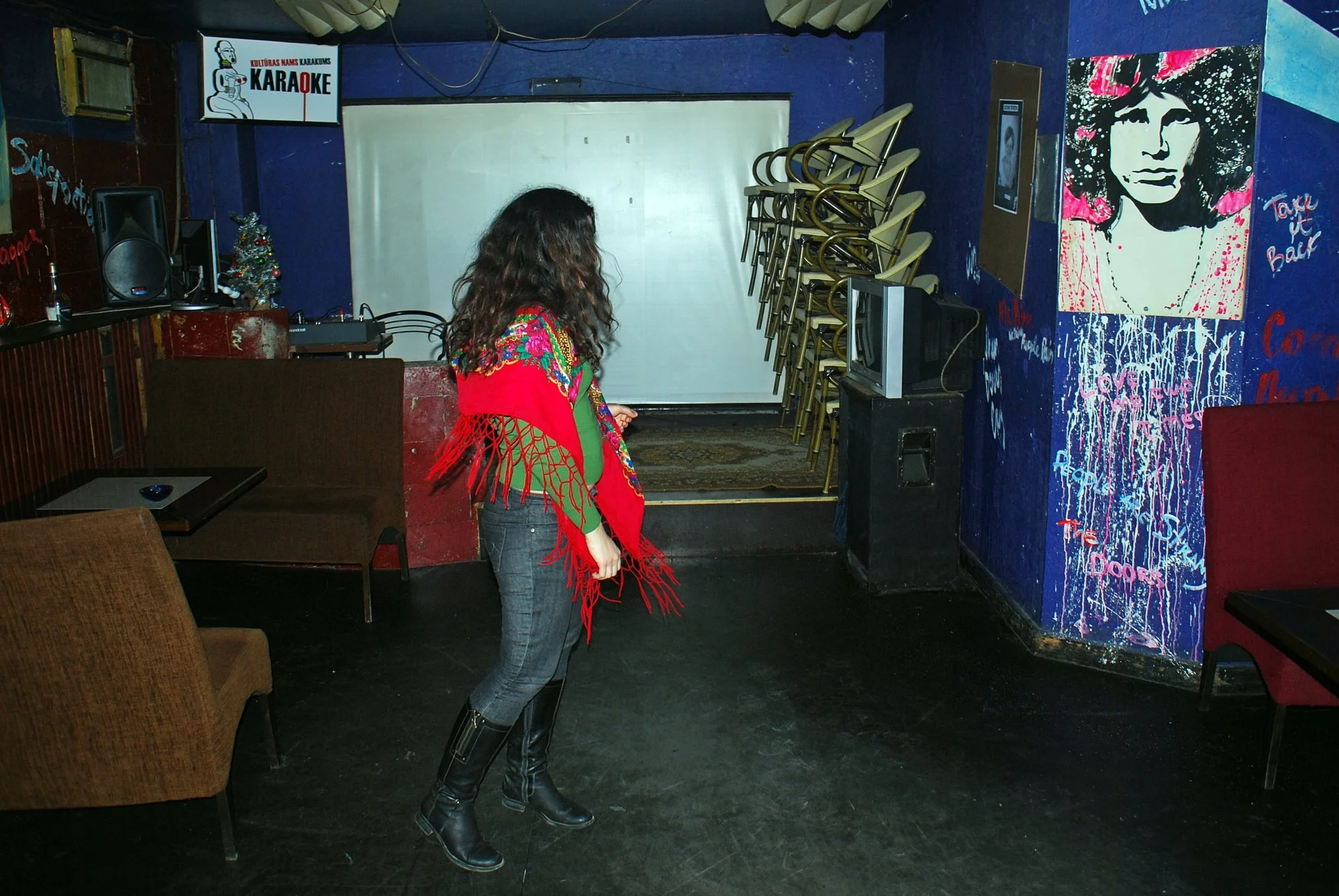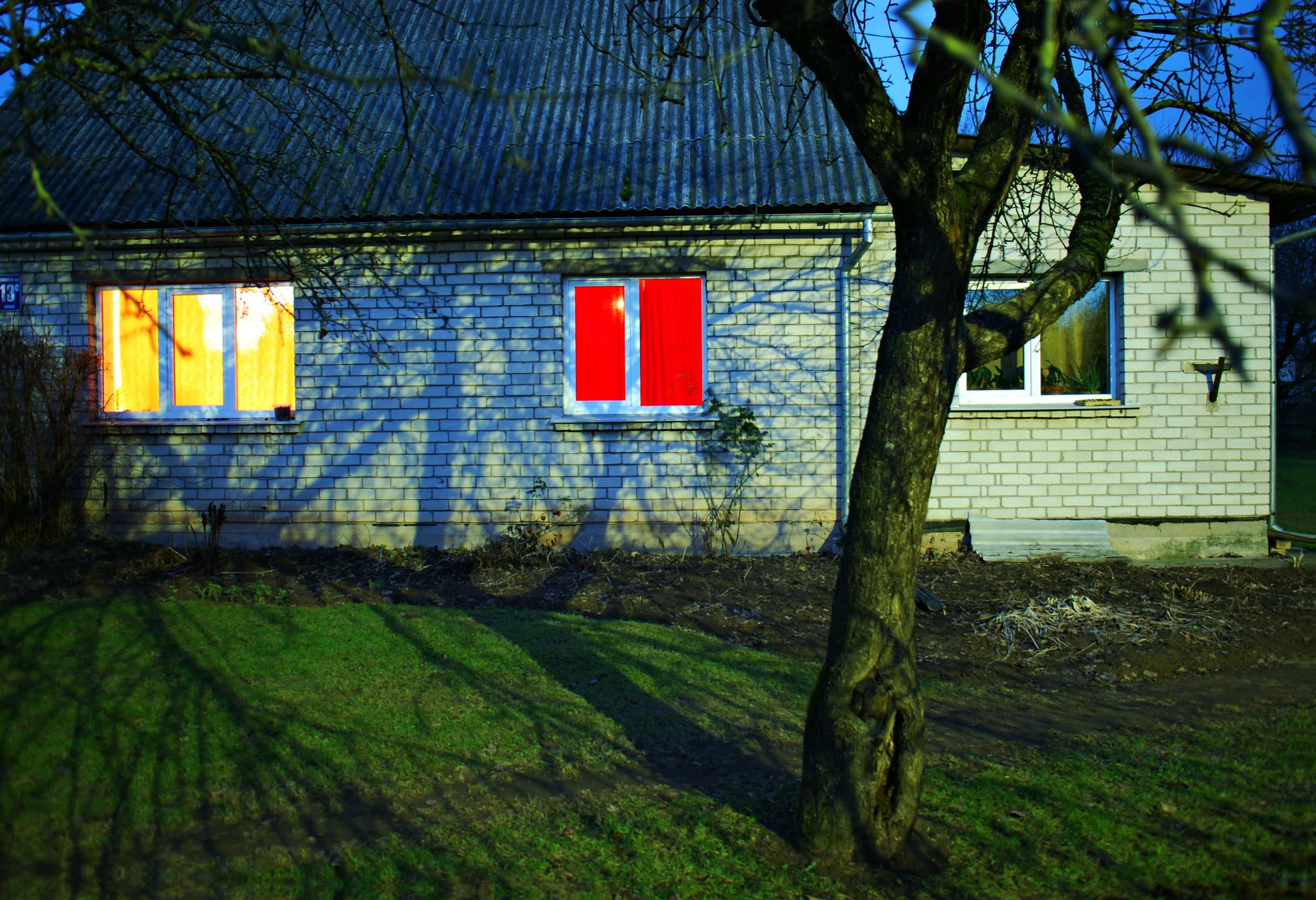





































Your Custom Text Here
Rudens diena
Vai atceries to rudenīgo dienu
Un mitro solu dārza lapenē,
Kad rudens salna apzeltīja zāli,
Tu manim lepni atbildēji «nē».
Un kad pēc gadiem restorāna zālē
Tur, augstu kalnos- svešā kūrortā,
No dzīves maldiem noguruši abi,
Mēs klausījāmies vēja koncertā.
Tu stāstīji, cik ātri paiet gadi,
Cik ātri dzīves glāzē izžūst vīns
Un cilvēks sava īsā mūža beigās
Ir atstāts vientuļš bēdu tuksnesī
Es gribu brīva būt kā jūras kaija,
Un tālu, tālu prom no tevis steigt
Kā kaija krīt, pār jūru lidodama,
Tā miršu es, par mīlu smiedamās.
Bērnībā pirms iemigšanas, mamma man mēdza dziedāt sērīgas latviešu 'šlāgerdziesmas'. Atceros, kā iztēlē koši uzbūru dziesmu tēlus un noskaņu. Sērija 'Zilā istaba' ir personīgs vizuāls ceļojums mītiskajā zemapziņas telpā starp disociāciju un vienību, vēlmi tuvoties un atsvešinātību;
Do you remember cloudy day of autumn
that dampish bench at garden's small
alcove
While grass was slightly gilded by the first frost
You proudly answered me - no
And when years later in the foreign restaurant
at quiet resort up in the mountains high
wild concert of the wind we listened
both tired of the fallacy of life
You told me about rate the years are passing
the runners brake, wine dries out in a glass
And at the end of immensely short life
One's left alone in desert of the grief
I want to be a snow-white little sea gull
Thats running miles and miles away from you
Just as the gulls fall over the sea flying
Thats how I'll die, while laughing about love
/translation of a popular Latvian schlager
When I was a kid, my mother used to sing me mournful Latvian balads before the sleep. I remember depicturing all the images represented there. The blue room is my visual journey delving into the mytical space between dissociation and integrity, urge for intimacy and alienation.
Rudens diena
Vai atceries to rudenīgo dienu
Un mitro solu dārza lapenē,
Kad rudens salna apzeltīja zāli,
Tu manim lepni atbildēji «nē».
Un kad pēc gadiem restorāna zālē
Tur, augstu kalnos- svešā kūrortā,
No dzīves maldiem noguruši abi,
Mēs klausījāmies vēja koncertā.
Tu stāstīji, cik ātri paiet gadi,
Cik ātri dzīves glāzē izžūst vīns
Un cilvēks sava īsā mūža beigās
Ir atstāts vientuļš bēdu tuksnesī
Es gribu brīva būt kā jūras kaija,
Un tālu, tālu prom no tevis steigt
Kā kaija krīt, pār jūru lidodama,
Tā miršu es, par mīlu smiedamās.
Bērnībā pirms iemigšanas, mamma man mēdza dziedāt sērīgas latviešu 'šlāgerdziesmas'. Atceros, kā iztēlē koši uzbūru dziesmu tēlus un noskaņu. Sērija 'Zilā istaba' ir personīgs vizuāls ceļojums mītiskajā zemapziņas telpā starp disociāciju un vienību, vēlmi tuvoties un atsvešinātību;
Do you remember cloudy day of autumn
that dampish bench at garden's small
alcove
While grass was slightly gilded by the first frost
You proudly answered me - no
And when years later in the foreign restaurant
at quiet resort up in the mountains high
wild concert of the wind we listened
both tired of the fallacy of life
You told me about rate the years are passing
the runners brake, wine dries out in a glass
And at the end of immensely short life
One's left alone in desert of the grief
I want to be a snow-white little sea gull
Thats running miles and miles away from you
Just as the gulls fall over the sea flying
Thats how I'll die, while laughing about love
/translation of a popular Latvian schlager
When I was a kid, my mother used to sing me mournful Latvian balads before the sleep. I remember depicturing all the images represented there. The blue room is my visual journey delving into the mytical space between dissociation and integrity, urge for intimacy and alienation.